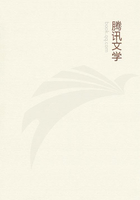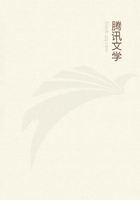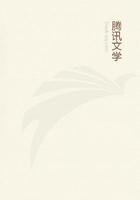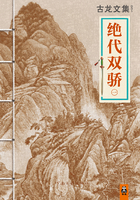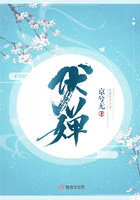Eudoxus also seems to have been right in his method of advocating the supremacy of pleasure; he thought that the fact that, though a good, it is not praised indicated it to be better than the things that are praised, and that this is what God and the good are; for by reference to these all other things are judged. Praise is appropriate to virtue, for as a result of virtue men tend to do noble deeds, but encomia are bestowed on acts, whether of the body or of the soul. But perhaps nicety in these matters is more proper to those who have made a study of encomia; to us it is clear from what has been said that happiness is among the things that are prized and perfect. It seems to be so also from the fact that it is a first principle; for it is for the sake of this that we all do all that we do, and the first principle and cause of goods is, we claim, something prized and divine.
13
Since happiness is an activity of soul in accordance with perfect virtue, we must consider the nature of virtue; for perhaps we shall thus see better the nature of happiness. The true student of politics, too, is thought to have studied virtue above all things; for he wishes to make his fellow citizens good and obedient to the laws. As an example of this we have the lawgivers of the Cretans and the Spartans, and any others of the kind that there may have been. And if this inquiry belongs to political science, clearly the pursuit of it will be in accordance with our original plan. But clearly the virtue we must study is human virtue; for the good we were seeking was human good and the happiness human happiness. By human virtue we mean not that of the body but that of the soul; and happiness also we call an activity of soul. But if this is so, clearly the student of politics must know somehow the facts about soul, as the man who is to heal the eyes or the body as a whole must know about the eyes or the body; and all the more since politics is more prized and better than medicine; but even among doctors the best educated spend much labour on acquiring knowledge of the body. The student of politics, then, must study the soul, and must study it with these objects in view, and do so just to the extent which is sufficient for the questions we are discussing; for further precision is perhaps something more laborious than our purposes require.
Some things are said about it, adequately enough, even in the discussions outside our school, and we must use these; e.g. that one element in the soul is irrational and one has a rational principle.
Whether these are separated as the parts of the body or of anything divisible are, or are distinct by definition but by nature inseparable, like convex and concave in the circumference of a circle, does not affect the present question.
Of the irrational element one division seems to be widely distributed, and vegetative in its nature, I mean that which causes nutrition and growth; for it is this kind of power of the soul that one must assign to all nurslings and to embryos, and this same power to fullgrown creatures; this is more reasonable than to assign some different power to them. Now the excellence of this seems to be common to all species and not specifically human; for this part or faculty seems to function most in sleep, while goodness and badness are least manifest in sleep (whence comes the saying that the happy are not better off than the wretched for half their lives; and this happens naturally enough, since sleep is an inactivity of the soul in that respect in which it is called good or bad), unless perhaps to a small extent some of the movements actually penetrate to the soul, and in this respect the dreams of good men are better than those of ordinary people. Enough of this subject, however; let us leave the nutritive faculty alone, since it has by its nature no share in human excellence.
There seems to be also another irrational element in the soul-one which in a sense, however, shares in a rational principle. For we praise the rational principle of the continent man and of the incontinent, and the part of their soul that has such a principle, since it urges them aright and towards the best objects; but there is found in them also another element naturally opposed to the rational principle, which fights against and resists that principle.
For exactly as paralysed limbs when we intend to move them to the right turn on the contrary to the left, so is it with the soul; the impulses of incontinent people move in contrary directions. But while in the body we see that which moves astray, in the soul we do not. No doubt, however, we must none the less suppose that in the soul too there is something contrary to the rational principle, resisting and opposing it. In what sense it is distinct from the other elements does not concern us. Now even this seems to have a share in a rational principle, as we said; at any rate in the continent man it obeys the rational principle and presumably in the temperate and brave man it is still more obedient; for in him it speaks, on all matters, with the same voice as the rational principle.
Therefore the irrational element also appears to be two-fold. For the vegetative element in no way shares in a rational principle, but the appetitive and in general the desiring element in a sense shares in it, in so far as it listens to and obeys it; this is the sense in which we speak of 'taking account' of one's father or one's friends, not that in which we speak of 'accounting for a mathematical property.
That the irrational element is in some sense persuaded by a rational principle is indicated also by the giving of advice and by all reproof and exhortation. And if this element also must be said to have a rational principle, that which has a rational principle (as well as that which has not) will be twofold, one subdivision having it in the strict sense and in itself, and the other having a tendency to obey as one does one's father.
Virtue too is distinguished into kinds in accordance with this difference; for we say that some of the virtues are intellectual and others moral, philosophic wisdom and understanding and practical wisdom being intellectual, liberality and temperance moral. For in speaking about a man's character we do not say that he is wise or has understanding but that he is good-tempered or temperate; yet we praise the wise man also with respect to his state of mind; and of states of mind we call those which merit praise virtues.

